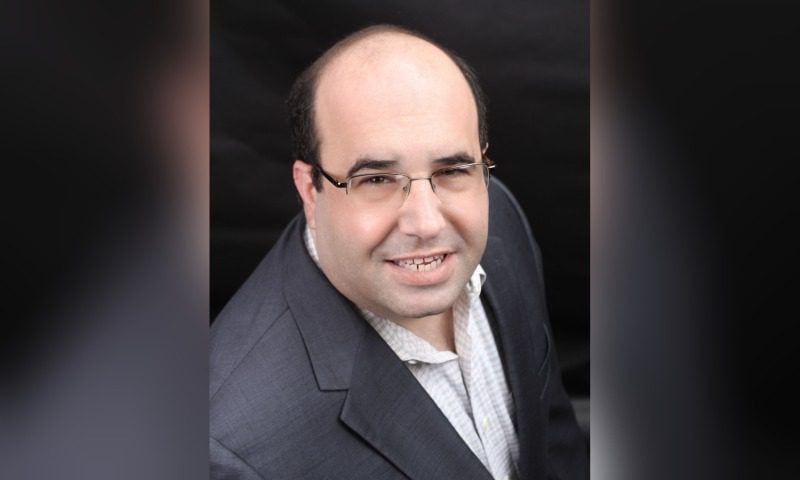Two couples have shared their heartbreaking experiences with the BBC, revealing that they underwent abortions after being mistakenly informed by an NHS trust that their unborn babies had serious genetic […] The post Tragic Errors In Prenatal Diagnosis At Nottingham University Hospitals NHS Trust appeared first on Nelsons.
Two couples have shared their heartbreaking experiences with the BBC, revealing that they underwent abortions after being mistakenly informed by an NHS trust that their unborn babies had serious genetic conditions.
These couples allege that errors made by doctors at the Nottingham University Hospitals NHS Trust, which is currently at the heart of the largest maternity inquiry in NHS history, led to the termination of their pregnancies. The families report how they were misled into thinking their unborn babies had serious genetic conditions. After they had made the harrowing decision to terminate, they were advised their babies were in fact healthy.
‘The most impossible choice’
Carly Wesson says “our daughter should be here.” At 14 weeks into her pregnancy, Carly made the difficult decision to terminate. She and her partner, Carl Everson, were anticipating the arrival of their first child in January 2019. However, a scan at 12 weeks revealed a high probability of Down’s Syndrome.
They were offered a chorionic villus sampling (CVS) test to determine if there were any genetic or chromosomal abnormalities. Soon after the foetal care team at the Hospital told the parents that the results indicated their daughter had Patau’s Syndrome, a rare genetic disorder that usually leads to miscarriage, stillbirth, or death shortly after birth.
Ms Wesson, 43, remembers a discussion with a foetal care consultant who explained that the baby would likely have severe care needs and might not survive the pregnancy.
“It’s the most impossible choice we’ve ever had to make. We thought the best option was to end the pregnancy because the baby was suffering.”
The couple decided to proceed with the abortion, believing there was no hope. Six weeks after the procedure, they were summoned to City Hospital and were informed that secondary testing with long-term CVS culture, revealed no chromosomal abnormalities.
When asked if their daughter would have lived, Ms Wesson recalls the doctor saying, “Well, you could have miscarried anyway.”
The trust asserted that its foetal medicine teams are dedicated to delivering “compassionate and professional” care. However, an investigation into the death carried out by the trust confirmed the second test showed “all 50 cells studied had a normal chromosome compliment”.
The first test result – which the couple say was the basis on which they decided to terminate the pregnancy – had been a false positive. The investigation concluded that this is “a well-recognised hazard of early CVS results”, and that the trust “must take responsibility for an outcome which would not have occurred were it not for a series of deficiencies in care, knowledge and process, all lining up together”.
Chief executive at Nottingham University Hospitals NHS Trust, Anthony May, stated:
“I know that we failed Carly, Carl, and their baby, Ladybird, in 2019, and for that, I am truly sorry. While words will never change the outcome, I can assure them and other families that we have investigated and learnt from this tragic case.”
Incorrect diagnosis
In 2017, another family, who requested anonymity, ended their 24-week pregnancy after being mistakenly told that their baby had a hereditary disorder.
While awaiting the results, the hospital contacted them, stating they had less than 24 hours to decide whether to terminate the pregnancy, as it would become more complicated later.
The couple decided to end the pregnancy, only to discover through a post-mortem that the baby did not have the condition.
“I kept calling the hospital every day asking for those test results,” the mother told the BBC. “I needed to know whether to disconnect from the pregnancy, as I didn’t know if my baby would survive.”
A close call
Another family came very close to ending their pregnancy after being told their 8-week unborn baby likely had a hereditary disorder that would limit their life span. Thankfully after a second scan, the couple decided not to proceed with the termination and their son is now 9 years old.
An investigation into the maternity care provided by the Nottingham University Hospitals NHS Trust is currently being carried out by Donna Ockenden, examining the treatment of over 2,000 families. She is gathering testimonies from approximately 2,500 families, with the final report scheduled for release in June 2026.
Comment
These tragic situations yet again underscore the critical importance of accurate medical diagnostics and the profound impact of clinical negligence on patients’ lives. This would have been an impossible choice for these families who will be forced to suffer the emotional and psychological toll of having to live with their decisions for the rest of their lives.
These incidents highlight the need for rigorous standards in prenatal testing and the importance of clear, accurate communication between healthcare providers and patients, especially given the well-recognised risks of false positives associated with early CVS results. It is imperative that clear information is provided to families about options for secondary testing.
The stories shared in the BBC article serve as a poignant reminder of the devastating impact of negligent clinical advice and treatment. These cases underscore the huge importance of advocacy and representation, not just for the pursuit of justice for affected families, but to ensure families are listened to and their experiences are recognised and become a catalyst for change. By addressing the root causes of diagnostic errors and holding healthcare providers accountable, we can work towards a safer and more reliable healthcare system.

How can we help?
Carolle White is a Legal Director and Chartered Legal Executive in our expert Medical Negligence team, which is ranked in Tier One by the independently researched publication, The Legal 500, and Commended in The Times Best Law Firms 2024. Carolle specialises in high-value and complex medical negligence cases and inquests.
If you require any advice in relation to the subjects discussed in this article, please do not hesitate to contact Carolle or another member of the team in Derby, Leicester, or Nottingham on 0800 024 1976 or via our online enquiry form.
Contact usThe post Tragic Errors In Prenatal Diagnosis At Nottingham University Hospitals NHS Trust appeared first on Nelsons.







